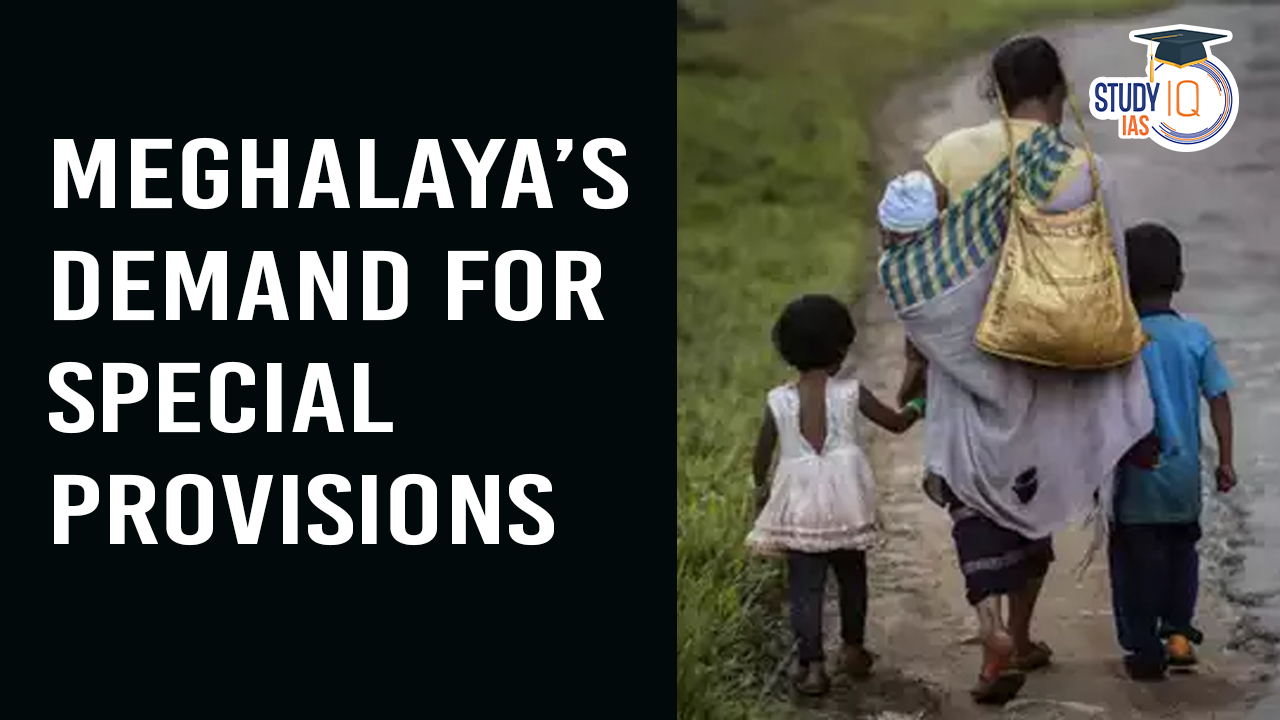Table of Contents
Context: A regional party in Meghalaya has proposed bringing the state under the purview of Article 371 to help resume rat-hole coal mining. Rat-hole mining has been banned since April 2014 by the National Green Tribunal (NGT) due to environmental and safety concerns.
Meghalaya’s Current Situation
- Meghalaya has Autonomous District Councils (ADCs) under the Sixth Schedule, which gives limited autonomy to tribal regions.
- Due to this, the NGT ban on rat-hole mining remains enforceable despite ADCs having control over land and resources.
What is Article-371 ?
- Article 371 provides special provisions for certain states in India to address regional concerns, cultural preservation, and economic development.
- These provisions vary from state to state.
- Article 369 appears in Part XXI of the Indian Constitution, titled ‘Temporary, Transitional and Special Provisions’.
- It extends to 11 states, six of them are from the Northeast, where the provisions aim to preserve tribal culture.
| State | Special Provisions |
| Maharashtra & Gujarat (Article 371) |
|
| Nagaland (Article 371A) |
|
| Assam (Article 371B) |
|
| Manipur (Article 371C) |
|
| Andhra Pradesh & Telangana (Article 371D & 371E) |
|
| Mizoram (Article 371F) |
|
| Arunachal Pradesh (Article 371G)
|
|
| Goa (371I) |
|
How Would Article – 371 Help Meghalaya ?
- Bypass Central Laws on Mining: Meghalaya could regulate mining independently, similar to Nagaland.
- Reduce NGT’s Control: NGT’s blanket ban on rat-hole mining may not apply, allowing controlled mining.
- Empower Autonomous District Councils (ADCs): Land and resource control would be exclusive to local communities, reducing state intervention.
- Preserve Local Culture and Economy: Coal mining is a major economic activity for locals and an Article 371 provision could protect traditional economic practices.


 Mechanisms to Combat Judicial Corruption...
Mechanisms to Combat Judicial Corruption...
 Registrar General and Census Commissione...
Registrar General and Census Commissione...
 Ambedkar Jayanti 2025: Biography, Legacy...
Ambedkar Jayanti 2025: Biography, Legacy...





















